Social Justice
Martin vs. Malcolm: The Olive Branch and The Arrow
35 years before Biggie vs. Tupac, and generations after Dubois vs. Garvey &Washington, the two leading African American minds, of their generation, engaged in an exhibition of philosophies.
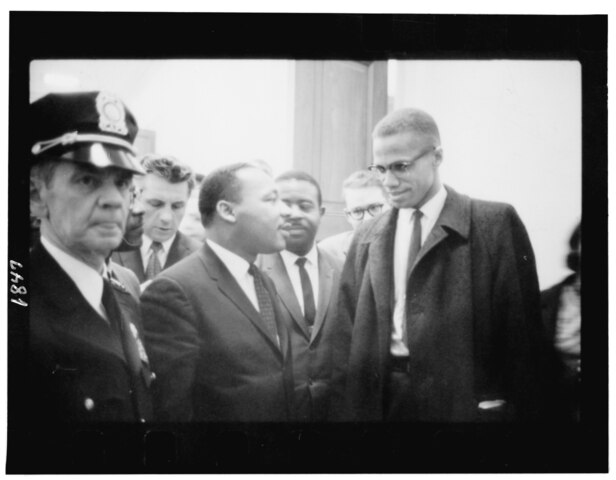
This gangster turned leader inspired fear in white America, and he meant to. He used the Jean Paul Sartre phrase “by any means necessary” to describe the resolve he, and the nation, had. Malcolm’s speech “By Any Means Necessary” was about finding “a solution to the problem that confront(ed) our people”. That problem was oppression. “By Any Means Necessary” was not intended to incite violence but solidarity. What he did assert was “the Afro American’s right to self defense.”
Malcolm’s philosophy was based on his reality, and his reality was a violent one. Therefore he stated that, “The history of unpunished violence against our people clearly indicates that we must be prepared to defend ourselves or we will continue to be a defenseless people at the mercy of a ruthless and violent racist mob.” It is often forgotten that prior to the riots of the 60’s the term “race riot” referred to whites coming into Black neighborhoods and perpetrating acts of violence. These same whites feared that taking their feet off of the necks of Blacks. “The Hate That Hate Produced” could have been called, “The Fear That Fear Caused”, such a title may have even been more accurate.
Regardless of fear and racism Malcolm made a point of stating that “we are Americans”, and that he believed in the viability of The Constitution of the United States. What he did not see was any evidence that that document was being applied to the rights of African Americans. Any law student who has studied the Supreme Court rulings onincorporation, the amendments to The Constitution that related to race, and the ways that those amendments were subverted in the name of states rights, would likely agree with Malcolm’s synopsis of the situation during his lifetime. On October 11, 1963, Malcolm was interviewed at UC Berkley, the first question that he was asked dealt with the “violent philosophy of Black Muslims”, his response to that question only spoke of violence in response to violence. Just as Booker T. Washington had been before him Malcolm was pragmatic. Violence is a staple of the American diet and was consumed in large quantities, and regurgitated on African Americans “without punishment” from this country’s founding until the Civil Rights movement. He was right about America but he was wrong about the role Whites would play in the freedom struggle and his understanding of non-violence as a methodology in that struggle. But he was learning and growing,
Real stories. Real impact. Straight to your inbox. Join thousands others. Click here to subscribe to our newsletter today!
-

 Black and Missing1 week ago
Black and Missing1 week agoMissing New Jersey teen found deceased
-

 Community1 week ago
Community1 week agoGoFundMe launched to support children after Mississippi mother’s fatal battle with cancer
-
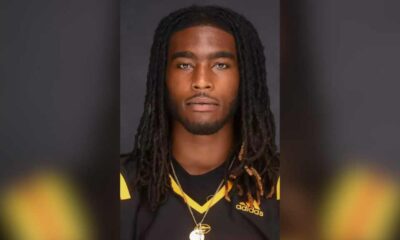
 Community1 week ago
Community1 week agoGrambling State Quarterback C’zavian Teasett creates GoFundMe as he recovers from spinal cord injury
-
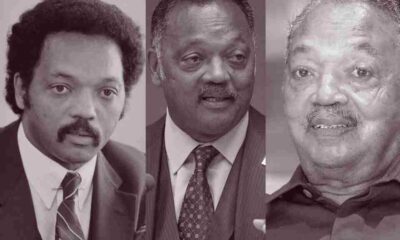
 In Memoriam6 days ago
In Memoriam6 days agoFuneral arrangements announced for Rev. Jesse Jackson Sr.
-

 Education1 week ago
Education1 week agoFormer NFL Player turned Maryland history teacher Tre’ Johnson dies at 54
-

 Crime & Justice5 days ago
Crime & Justice5 days agoFamily remembers Georgia teacher, mother killed when driver fleeing ICE crashed into her car; GoFundMe launched
-
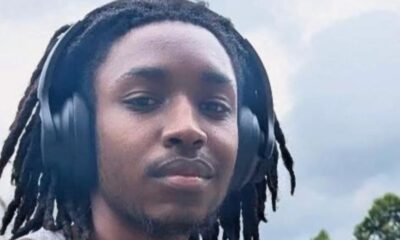
 Real Voices5 days ago
Real Voices5 days agoGoFundMe launched for missing 21-year-old man found dead, hanging from tree in Atlanta park
-

 Real Voices1 week ago
Real Voices1 week agoGeorgia man killed by train remembered as a hero after saving friend






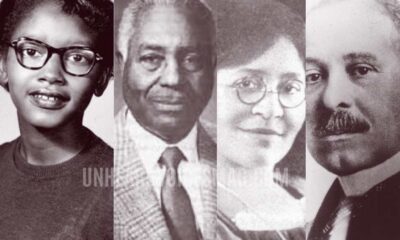

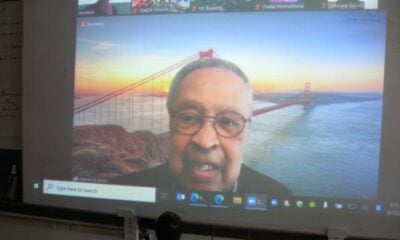

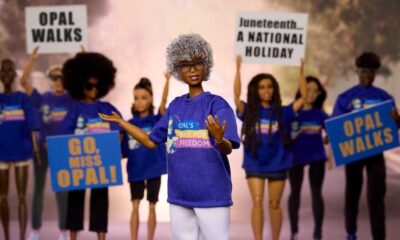



















Keith Covin
August 29, 2013 at 11:50 pm
Nice article, I am sure that both King and Malcolm must be rolling in their graves to see the preempted negative state of African Americans today.